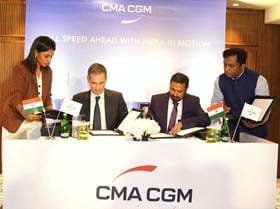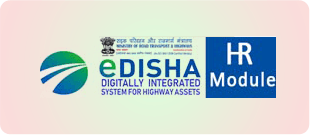Shekhawat highlights India’s community centric approach for water management
India has committed more than US$140 billion investment on development of water sector by 2024 and has adopted an initiative involving community contribution, said Minister for Jal Shakti (Water) Gajendra Singh Shekhawat.
“Along with the Government’s massive investment, we adopted community centric approach whereby at least 10% funds are contributed by community in every program ensuring community ownership and participation,” he said at the International Water Association’s (IWA) World Water Congress & Exhibition 2022 held in Copenhagen 12 on Sept 2022.
He elaborated on the Government efforts. “Recognising the importance of holistic water management, our Prime Minister Narendra Modi has brought various activities related to water under one umbrella and formed an integrated ministry in the name of Jal Shakti (water power) in 2019.
“This has given greater synergy and coherence to water management in India and we have committed investments of more than US$140 billion to the water sector. This investment is for projects to be implemented by 2024.
“Also, we have adopted community centric approach whereby at least 10% funds are contributed by community in every program ensuring community ownership and participation.”
Shekhawat was also joined by Lea Wermelin, Minister of Environment, Denmark, and Flemming Møller Mortensen, Minister of Development Co-operation, Denmark, along with the Indian Delegation at the launched of a Whitepaper on ‘Urban Wastewater Scenario in India’ at the congress and exhibition.
The whitepaper on urban wastewater management was developed by a Government of India interdisciplinary team formed with partners from Atal Innovation Mission (AIM), NITI Aayog, Ministry of Jal Shakti and National Mission for Clean Ganga (NMCG), international agency Innovation Centre Denmark (ICDK) and academia Indian Institute of Technology Bombay (IITB).
Considering all stakeholders’ concerns for wastewater management, the whitepaper holistically captures the current status of wastewater treatment in India and potential pathways for future treatment structures, co-creation and collaborations was collectively produced.
Curated by experts from AIM-NITI Aayog, ICDK, NCMG and IIT Bombay, the whitepaper further highlights some success stories, need for wastewater treatment, scope for improvement and augmentation in existing infrastructure and technologies, methods for public participatory approach, financing and co-financing options, smart technologies for rapid data collection and dissemination and building capacity via training and stakeholder apex bodies for increasing the efficiency of urban wastewater treatment for India.
“This whitepaper is an outcome of Green Strategic Partnership with a focus on green hydrogen, renewable energy and wastewater management between India and Denmark and their bilateral ties,” said NITI Aayog in a release.
Avinash Mishra, Advisor, Water Vertical, NITI Aayog, discussed the white paper on Urban wastewater Scenario in India at the event.
He explained, “This white paper is a straightforward narration of the Indian urban wastewater sector. However, this has parallels across the world. India’s ancient wisdom promulgates that ‘the whole world is one family’, which enunciates the need of transcending man-made boundaries to address the common issues.
“Collective global thinking and concerted local actions should be the strategic model to deal with the problem, or rather an opportunity, of urban waste water management. When cities are growing smart, water cannot take a back seat.”
As part of Indo-Danish Bilateral Green Strategic Partnership, Atal Innovation Mission (AIM), NITI Aayog in partnership with Innovation Center Denmark (ICDK), a unit under Embassy of Denmark, and Denmark Technical University (DTU) design, had earlier planned and implemented the AIM-ICDK Water Innovation Challenges in India.
These challenges were to identify promising innovators from India, who could represent and form the Indian participation in the global Next Generation Water Action program hosted by IWA and Denmark Technical University.
AIM on boarded academic partners – IIT Delhi, IIT Bombay and International Center for Clear Water at IIT Madras and Incubator partners – AIC-Sangam and AIC FISE to guide the teams. Teams working on India problems were provided mentorship support by a carefully curated and illustrious panel of water experts.
Following this, the Danish embassy conducted the AIM-ICDK 2.0 water innovation challenge again with the partnership of Atal Innovation Mission, NITI Aayog.
Next Generation Water Action (NGWA) is an international initiative with the ambition to engage young talents from leading universities and innovation hubs before, during and after the IWA World Water Congress & Exhibition 2022. fiinews.com










